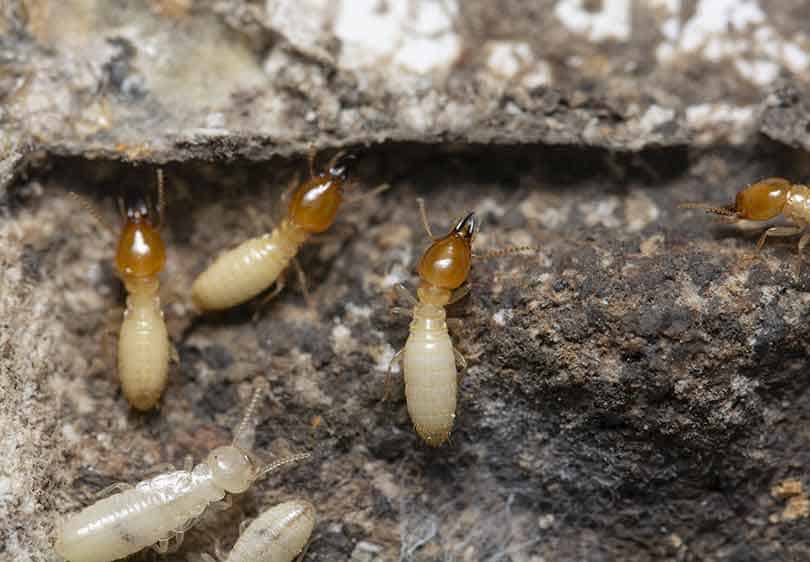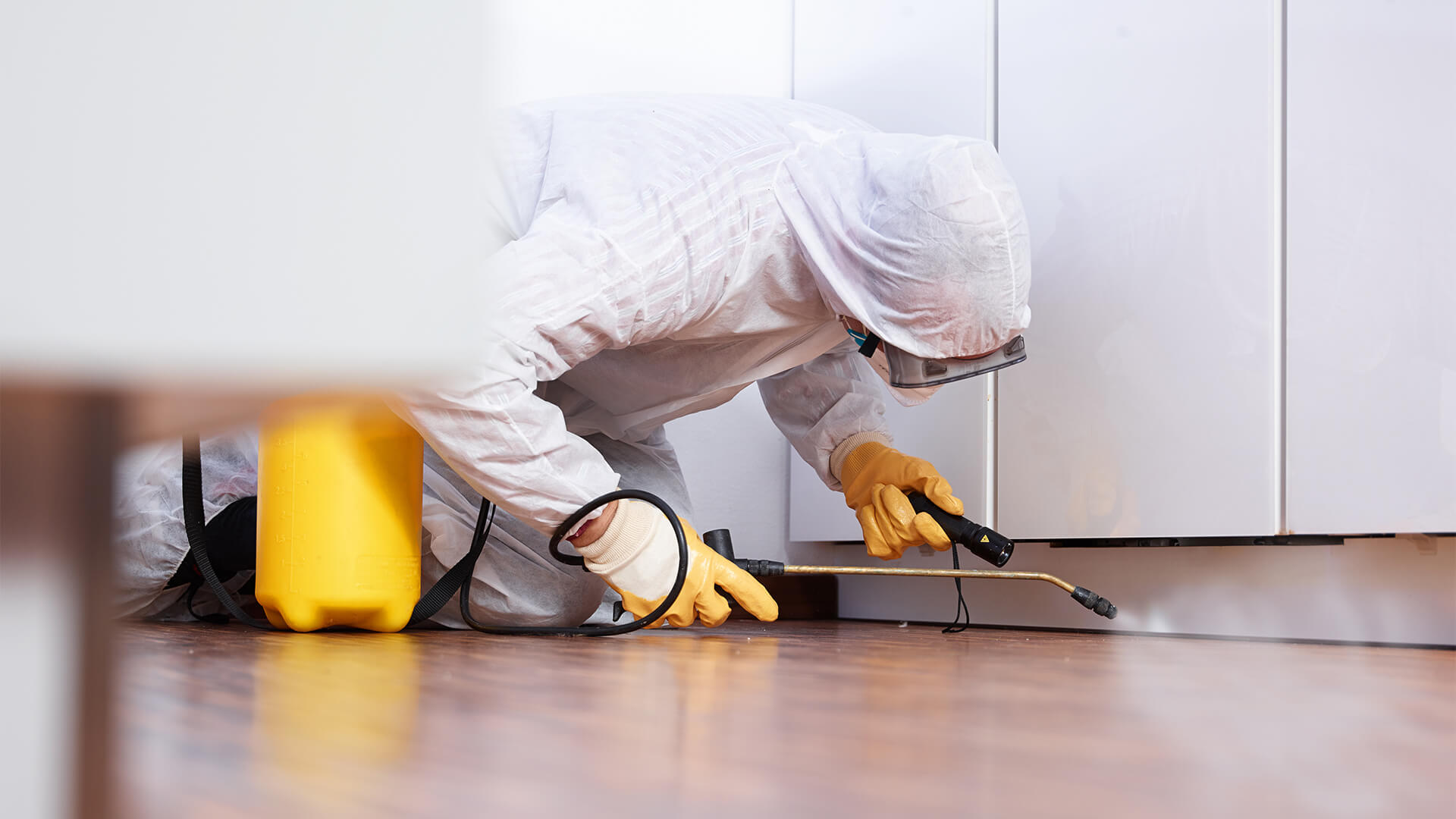Shield Your Residential Or Commercial Property from Intruders: Orem Pest Control That Functions
Shield Your Residential Or Commercial Property from Intruders: Orem Pest Control That Functions
Blog Article
Finding the Various Types of Parasite Control Techniques and Their Applications
Bug control is a critical facet of preserving a safe and healthy environment, whether it remain in residential, business, or agricultural settings. Different methods have actually been established and improved throughout the years to efficiently take care of and minimize parasite infestations. From chemical techniques that target certain bugs to organic strategies that harness natural killers, the realm of parasite control is diverse and vast. Comprehending the various sorts of bug control strategies and their applications is important for applying one of the most sustainable and suitable solutions. Allow's check out the complexities of these techniques and how they can be efficiently used to deal with pest-related difficulties.
Chemical Bug Control Strategies
Chemical pest control techniques are widely utilized in agriculture and parasite administration to efficiently eliminate or regulate pest invasions. These approaches include using chemical materials, such as herbicides, chemicals, and pesticides, to eliminate or reduce parasite populations that posture a risk to crops, animals, or human health. Pesticides, as an example, target specific insects like rodents, insects, or weeds, disrupting their life cycles or triggering direct damage upon contact. Herbicides are especially designed to manage unwanted greenery that competes with crops for sources and nutrients. Pesticides, on the various other hand, are made use of to deal with insect pests that can harm plants and transmit illness.
While chemical parasite control techniques can be highly effective in taking care of bug populations, they additionally elevate problems regarding prospective ecological and health threats. It is essential to comply with security standards, use incorporated pest monitoring methods, and take into consideration different techniques to minimize the unfavorable impacts of chemical bug control methods.
Organic Pest Control Techniques
 Biological bug control methods use living organisms to handle and decrease parasite populaces in a lasting and eco pleasant manner. One typical method is the release of ladybugs to battle aphids in gardens, as ladybugs are natural killers of these devastating insects.
Biological bug control methods use living organisms to handle and decrease parasite populaces in a lasting and eco pleasant manner. One typical method is the release of ladybugs to battle aphids in gardens, as ladybugs are natural killers of these devastating insects.
Organic bug control techniques offer several advantages over chemical methods. They are typically much safer for the setting, as they do not leave hazardous deposits or add to pollution. In addition, these methods are typically much more targeted, affecting just the parasite varieties without harming useful pests or other organisms. Biological control can be a long-lasting service, as the presented organisms can establish sustainable populations and offer recurring bug administration. In general, organic parasite control methods present a reliable and natural option to typical chemical therapies, advertising a well balanced environment and much healthier environments.
Physical Bug Control Approaches
Utilizing physical techniques to control bugs involves the use of non-chemical or mechanical ways to reduce and handle bug invasions effectively. One common physical pest control technique is the installation of webs, fences, or screens to block parasites from getting in certain areas.
One more physical technique is the use of catches, such as breeze traps for rodents or scent catches for pests. These traps objective to capture parasites without presenting web any danger to people or the setting. Furthermore, physical control techniques can consist of strategies like handpicking insects off plants, utilizing vacuum cleaner devices to eliminate bugs, or utilizing heat treatments to remove bed insects and other bugs in ravaged areas.
Integrated Parasite Monitoring Approaches
Carrying out an all natural approach to pest monitoring, Integrated Parasite Administration (IPM) methods aim to combine different reliable methods to stop and regulate parasite invasions while reducing ecological effect and ensuring sustainable pest control techniques. IPM includes the integration of numerous control methods such as organic control, cultural practices, mechanical control, and the mindful usage of pesticides.

Additionally, IPM highlights the relevance of surveillance and analyzing pest populaces to establish one of the most ideal control techniques. By applying IPM techniques, bug control click initiatives end up being more targeted and efficient, reducing the risks connected with too much pesticide use and advertising lasting pest monitoring remedies.
All-natural and Organic Parasite Control Options

One prominent organic parasite control approach is neem oil, stemmed from the seeds of the neem tree, which works as a repellent and interrupts the growth and growth of pests. Diatomaceous planet, an all-natural silica-based powder, is one more effective natural bug control alternative that works by drying out insects upon call. By integrating all-natural and natural parasite control options right into insect management strategies, individuals can successfully manage insects while lessening damage to the setting and advertising sustainable practices.
Conclusion
In final thought, numerous bug control strategies such as chemical, organic, physical, incorporated insect management, and natural choices are offered for successfully managing pest problems. Each approach has its very own benefits and applications depending upon the type of bug and the setting. By recognizing the different sorts of parasite control methods and their applications, people can make informed decisions on one of the most proper approach to manage parasites and secure their residential property.
Chemical parasite control techniques are extensively utilized in agriculture and parasite monitoring to successfully eradicate or manage pest invasions - Orem Pest Control. Natural pest control approaches entail utilizing organic control agents, such as predators or bloodsuckers, to handle bug populaces. By integrating natural and all-natural bug control options into pest administration methods, people can efficiently control bugs while lessening harm to the environment and advertising sustainable techniques
In final thought, different pest control strategies such as chemical, organic, physical, integrated pest management, and all-natural options are offered for efficiently handling insect invasions. By comprehending the various kinds of bug control techniques and their applications, people can make enlightened decisions on the most appropriate method to manage parasites and protect their home.
Report this page